Tuesday, December 05, 2006
I Don't Know What More I Can Do.
It's really difficult to get this message to people who already have had a coronary artery bypass. They are convinced their cardiologist is a saint and if it were not for him, they would have been dead a long time ago. Right, and the tooth fairy takes dentures. I am tired of pussy footing around the subject. If you did not get a second opinion from a noninvasive cardiologist when your interventional cardiologist told you you would have a heart attack or die if you didn't immediately have a bypass, you are a fool.
I started this blog nearly three years ago, after being told by a cardiologist, cardio-thoracic surgeon, and my own primary care physician, that I needed to have a quintuple coronary artery bypass within a day or I could be dead or have a heart attack. "Your heart is great," I was told, "but your coronary arteries are bad, very bad. You are a walking time bomb."
I thought that assessment rather strange. I had been walking this earth for the previous six months with frequent symptoms of angina that occurred each time I engaged in physically stressful activities. When I would rest, they would go away, troubling occurences I realized were cardiac in nature, but not so much that I worried about them.
"But doctor, if I have two coronary arteries that are 100% blocked and three that are 85% or more blocked, why is it my heart is in such great shape? Isn't it the job of the coronary arteries to keep my heart working by bringing oxygen? My heart must be getting oxygen from somewhere, right?" I asked.
Not one of these paragons of American medicine was able to answer my questions, or perhaps, they were able to, but unwilling. As I learned later, that was probably the case. I told my family doctor and the two consultants I hardly knew, no thank you, I do not want my chest cracked open this week, nor do I want to be on an operating table next week. In fact, so adverse am I to scapels, I think I'll get a second opinion. Despite their strong protestations, that's exactly what I did.
I found Dr. Howard Wayne on the Internet. He ran the NonInvasive Heart Clinic of San Diego
and he personally answered my email within a few hours and by that evening we were talking on the phone. He told me not to let anyone cut on me and we set up an appointment for the folling month in his San Diego office. The visit cost me $1600 out of pocket expense that my insurance would not cover. Far less costly than the quintuple bypass Indiana doctors wanted me to receive.
When I arrived at Dr. Wayne's office, I found a man who looked 15 years younger than his 81 years. In fact, it was only after his death while on vacation at Lake Tahoe this last October 23, that I learned Dr. Wayne's true age. He ran his clinic without a receptionist or nurse. But he did have medical equipment that must have cost a fortune. He didn't have a medical technician to do the tests, Dr. Wayne was a one man show.
After around two and a half hours of poking and prodding my chest with doppler devices and microphone looking gizmos, and listening very carefully to many areas of my heart through earphones, he announced, "Yeah, your coronary arteries are pretty useless. But that's not causing your angina."
"It's not?" I replied, surprised. "Nope. You've got high blood pressure," he said confidently without having yet measured my blood pressure.
"I've never had high blood pressure doctor," I politely responded. "It's always 120/70 or thereabouts."
"You don't know it, but every time you get angina pain, it is caused by hypertension," he said flatly.
Then he had me lay on the examining table and he put a blood pressure cuff on my left arm. He carefully put the stethescope bell on my arm and gently pumped the cuff up. He released the air slowly and then announced, "120/70."
"See, I told you," I said, a bit too smugly. "Now take this instrument and hold it in your right hand and squeeze it as hard as you can while holding your right arm up in the air. I took the grip-measuring device and did as I was told. A minute into the exercise, he took my blood pressure. It was 230/130. I was dumbfounded. He was right.
Dr. Wayne started me on a medication regimen and the angina went away. I won't get into what the drugs are, they are found in other threads on this blogsite. I will tell you why Dr. Wayne wasn't worried about my coronary artery disease.
Males, over 50, have a remarkable ability to generate new blood vessels whenever the ones they were born with are compromised by injury, or in my case, by the normal aging process. Yes, coronary artery disease is not really a disease. Often bypasses damage the new vessels a body is creating, doing more damage in the long run.
Let's look at what the American Heart Association says about angiogenesis, the creation of new blood vessels:
Angiogenesis is a natural process in the body that involves the growth of new blood vessels. It can occur during coronary artery disease, peripheral artery disease and stroke when there's insufficient blood supply and oxygen to the tissues, a condition known as ischemia. The body's first response to less blood flow to the heart is to grow tiny new "collateral" vessels to help blood flow around the blockage. For unknown reasons, the process eventually switches off. Some proteins in the body can help trigger new blood vessl growth and so increase the oxygen supply to the ischemic tissue. Such angiogenic proteins include the endothelial growth factor, vascular endothelial growth factor (VEGF) and fibroblast growth factor (FGF). Scientists are using gene therapy to copy this natural process by delivering angiogenic genes to ischemic tissue. For example, let's say the goal is to create or improve blood flow in peripheral (leg) or coronary (heart) arteries damaged by vascular disease. Then, the ability to "turn on" the angiogenesis gene could be a potentially powerful way to "grow" new blood vessels. Several scientific studies involving gene therapy trials for cardiovascular disease in humans are under way and look very promising. However, gene therapy still needs many improvements before it becomes routine treatment for cardiovascular disease in the clinic.
Yes, my body was building its own bypasses around the blocked arteries and Dr. Wayne said the medication will help nature take its course. He said within a year or so, my collateral vessels will replace the blocked arteries. Again, lets see what the American Heart Association says about collateral circulation:
What is collateral circulation?
This is a process in which small (normally closed) arteries open up and connect two larger arteries or different parts of the same artery. They can serve as alternate routes of blood supply. Everyone has collateral vessels, at least in microscopic form. These vessels normally aren't open. However, they grow and enlarge in some people with coronary heart disease or other blood vessel disease. While everyone has collateral vessels, they don't open in all people. How does collateral circulation help people with heart disease? When a collateral vessel on the heart enlarges, it lets blood flow from an open coronary artery to an adjacent one or further downstream on the same artery. In this way, collateral vessels grow and form a kind of "detour" around a blockage. This collateral circulation provides alternate routes of blood flow to the heart in cases when the heart isn't getting the blood supply it needs (myocardial ischemia) (mi"o-KAR'de-al is-KE'me-ah).
These are things your cardiologist doesn't want you to know. If you did, their scare tactics and coercion would be obvious. The Coronary Artery Bypass Graft is the most over-prescribed surgery in America and doctors should be ashamed that they violate their Hyppocratic Oaths with 95% of the CABGs they perform.
I started this blog nearly three years ago, after being told by a cardiologist, cardio-thoracic surgeon, and my own primary care physician, that I needed to have a quintuple coronary artery bypass within a day or I could be dead or have a heart attack. "Your heart is great," I was told, "but your coronary arteries are bad, very bad. You are a walking time bomb."
I thought that assessment rather strange. I had been walking this earth for the previous six months with frequent symptoms of angina that occurred each time I engaged in physically stressful activities. When I would rest, they would go away, troubling occurences I realized were cardiac in nature, but not so much that I worried about them.
"But doctor, if I have two coronary arteries that are 100% blocked and three that are 85% or more blocked, why is it my heart is in such great shape? Isn't it the job of the coronary arteries to keep my heart working by bringing oxygen? My heart must be getting oxygen from somewhere, right?" I asked.
Not one of these paragons of American medicine was able to answer my questions, or perhaps, they were able to, but unwilling. As I learned later, that was probably the case. I told my family doctor and the two consultants I hardly knew, no thank you, I do not want my chest cracked open this week, nor do I want to be on an operating table next week. In fact, so adverse am I to scapels, I think I'll get a second opinion. Despite their strong protestations, that's exactly what I did.
I found Dr. Howard Wayne on the Internet. He ran the NonInvasive Heart Clinic of San Diego
and he personally answered my email within a few hours and by that evening we were talking on the phone. He told me not to let anyone cut on me and we set up an appointment for the folling month in his San Diego office. The visit cost me $1600 out of pocket expense that my insurance would not cover. Far less costly than the quintuple bypass Indiana doctors wanted me to receive.
When I arrived at Dr. Wayne's office, I found a man who looked 15 years younger than his 81 years. In fact, it was only after his death while on vacation at Lake Tahoe this last October 23, that I learned Dr. Wayne's true age. He ran his clinic without a receptionist or nurse. But he did have medical equipment that must have cost a fortune. He didn't have a medical technician to do the tests, Dr. Wayne was a one man show.
After around two and a half hours of poking and prodding my chest with doppler devices and microphone looking gizmos, and listening very carefully to many areas of my heart through earphones, he announced, "Yeah, your coronary arteries are pretty useless. But that's not causing your angina."
"It's not?" I replied, surprised. "Nope. You've got high blood pressure," he said confidently without having yet measured my blood pressure.
"I've never had high blood pressure doctor," I politely responded. "It's always 120/70 or thereabouts."
"You don't know it, but every time you get angina pain, it is caused by hypertension," he said flatly.
Then he had me lay on the examining table and he put a blood pressure cuff on my left arm. He carefully put the stethescope bell on my arm and gently pumped the cuff up. He released the air slowly and then announced, "120/70."
"See, I told you," I said, a bit too smugly. "Now take this instrument and hold it in your right hand and squeeze it as hard as you can while holding your right arm up in the air. I took the grip-measuring device and did as I was told. A minute into the exercise, he took my blood pressure. It was 230/130. I was dumbfounded. He was right.
Dr. Wayne started me on a medication regimen and the angina went away. I won't get into what the drugs are, they are found in other threads on this blogsite. I will tell you why Dr. Wayne wasn't worried about my coronary artery disease.
Males, over 50, have a remarkable ability to generate new blood vessels whenever the ones they were born with are compromised by injury, or in my case, by the normal aging process. Yes, coronary artery disease is not really a disease. Often bypasses damage the new vessels a body is creating, doing more damage in the long run.
Let's look at what the American Heart Association says about angiogenesis, the creation of new blood vessels:
Angiogenesis is a natural process in the body that involves the growth of new blood vessels. It can occur during coronary artery disease, peripheral artery disease and stroke when there's insufficient blood supply and oxygen to the tissues, a condition known as ischemia. The body's first response to less blood flow to the heart is to grow tiny new "collateral" vessels to help blood flow around the blockage. For unknown reasons, the process eventually switches off. Some proteins in the body can help trigger new blood vessl growth and so increase the oxygen supply to the ischemic tissue. Such angiogenic proteins include the endothelial growth factor, vascular endothelial growth factor (VEGF) and fibroblast growth factor (FGF). Scientists are using gene therapy to copy this natural process by delivering angiogenic genes to ischemic tissue. For example, let's say the goal is to create or improve blood flow in peripheral (leg) or coronary (heart) arteries damaged by vascular disease. Then, the ability to "turn on" the angiogenesis gene could be a potentially powerful way to "grow" new blood vessels. Several scientific studies involving gene therapy trials for cardiovascular disease in humans are under way and look very promising. However, gene therapy still needs many improvements before it becomes routine treatment for cardiovascular disease in the clinic.
Yes, my body was building its own bypasses around the blocked arteries and Dr. Wayne said the medication will help nature take its course. He said within a year or so, my collateral vessels will replace the blocked arteries. Again, lets see what the American Heart Association says about collateral circulation:
What is collateral circulation?
This is a process in which small (normally closed) arteries open up and connect two larger arteries or different parts of the same artery. They can serve as alternate routes of blood supply. Everyone has collateral vessels, at least in microscopic form. These vessels normally aren't open. However, they grow and enlarge in some people with coronary heart disease or other blood vessel disease. While everyone has collateral vessels, they don't open in all people. How does collateral circulation help people with heart disease? When a collateral vessel on the heart enlarges, it lets blood flow from an open coronary artery to an adjacent one or further downstream on the same artery. In this way, collateral vessels grow and form a kind of "detour" around a blockage. This collateral circulation provides alternate routes of blood flow to the heart in cases when the heart isn't getting the blood supply it needs (myocardial ischemia) (mi"o-KAR'de-al is-KE'me-ah).
These are things your cardiologist doesn't want you to know. If you did, their scare tactics and coercion would be obvious. The Coronary Artery Bypass Graft is the most over-prescribed surgery in America and doctors should be ashamed that they violate their Hyppocratic Oaths with 95% of the CABGs they perform.
Subscribe to:
Post Comments (Atom)



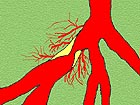
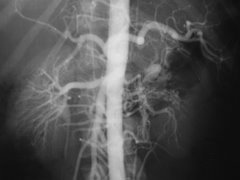
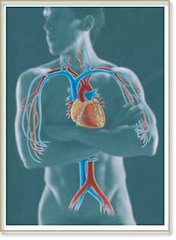
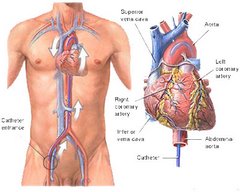
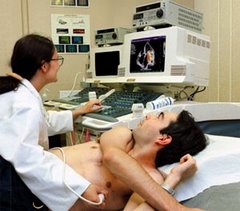
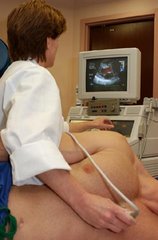
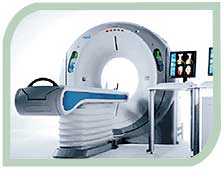
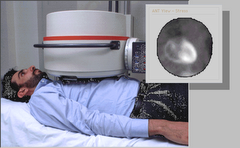
No comments:
Post a Comment